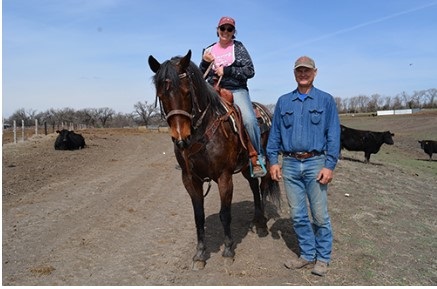COLSTRIP, MT – Landowners near the Colstrip power plants were excited to see the Montana Department of Environmental Quality (DEQ) release its plan to clean up massive coal ash ponds from the plants. But one of the plants’ owners is challenging that proposal. Comments from Clint McRae, rancher in Colstrip.
Many landowners in southeastern Montana are displeased with Talen Energy’s decision to challenge a cleanup plan for Colstrip’s coal ash ponds. The company, which is part owner of the Colstrip power plants, says the 285-million-dollar plan for retired Units 1 and 2 is “grossly excessive.” The ponds contain six-point-seven million cubic yards of toxic coal ash. Clint McRae, a Colstrip rancher and member of the grassroots organization Northern Plains Resource Council, says the coal ash has contaminated the region’s shallow aquifers and that Talen is trying to portray itself as the victim.
“They have a responsibility to the state of Montana and to the public and specifically the adjacent landowners to clean up their mess and the ruling that they were going to challenge this was very disappointing but it has served them well for the last 40 years and it wasn’t surprising that they went down that lane.”
McRae supports the Montana Department of Environmental Quality’s plan, approved in November. Northern Plains estimates cleaning up the ash pond complex would bring 218 jobs to the region for at least a decade. But Talen’s December challenge delays the plan’s implementation, leaving a decision to be made under the administration of newly sworn-in Governor Greg Gianforte.
In the 1970s when the Colstrip plants were permitted, it was stipulated that the ash ponds would be completely-sealed, zero-discharge facilities and closed-loop systems. But four decades later, landowners have discovered that the leaking ponds discharge 400-thousand gallons of contaminated water per day. McRae says the D-E-Q plan is an opportunity to hold Colstrip plant owners responsible.
“The Montana Department of Environmental Quality finally stood up to the company and came out with their recommendation of completely cleaning these things up – lining the ponds, putting the effluent or the dry matter back into these ponds so they would never get into the ground water again.”
“If they can’t do a better job than what they did and what they promised us 40 years ago, then these projects shouldn’t go forward. And this is a prime example why there is so much resistance to projects like this.”
McRae says Montanans expect the company to abide by the law and for state agencies to enforce the law, but neither happened while Colstrip ash ponds have leaked. He says that has a big impact on folks in agriculture, who rely on clean water.












